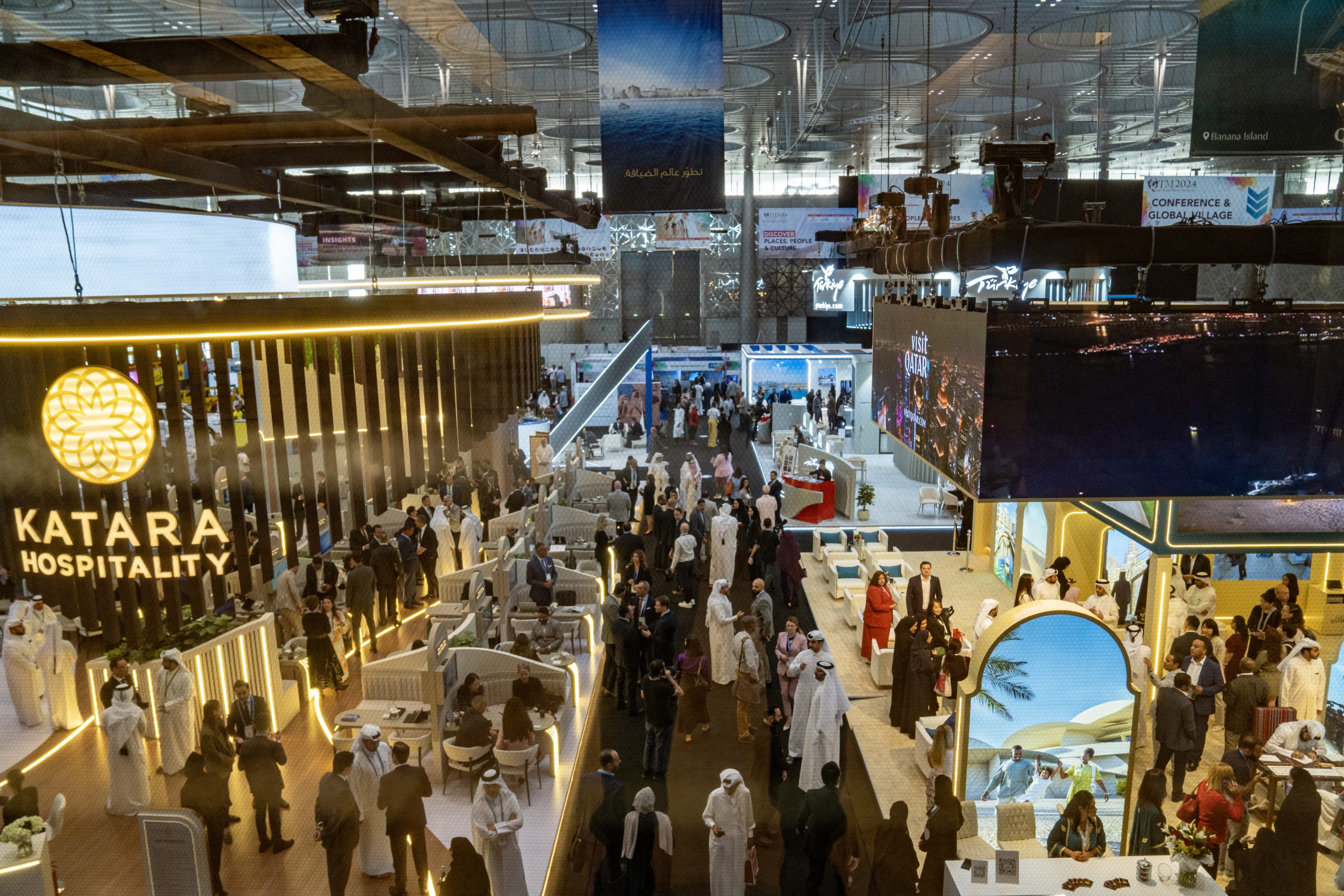
Big-wheeled buses – similar in appearance to the monster trucks known for crushing cars in arena competitions – will soon be joining the legions of Land Cruisers that take tourists on dune-bashing safaris in Qatar’s desert.
The vehicles will be brought to Qatar by Doha Bus, which operates the colorful double-decker tourist vehicles that travel around the city.
The company is one of four businesses that signed sponsorship agreements with the Qatar Tourism Authority (QTA) and Qatar Development Bank (QDB) this week on proposals to help woo more travelers to the country.
They were selected out of 19 applications, QDB said in a statement.
Government authorities are eager to boost the number of visitors to Qatar and announced a plan earlier this year to eventually support 25 specific projects with marketing efforts, industry advice, regulatory assistance and financial aid to help accelerate the tourism sector’s development.
One of those initiatives was to create a 4×4 leasing company that would supply SUVs, specially outfitted for desert driving, to tour operators.
Desert tours
Earlier this year, QTA and QDB said that many of the drivers who currently take visitors out on desert tours “are not experienced enough to conduct the activity safely.”
The organizations added that it wanted to see more vehicles equipped with roll bars, first aid kits, radios and other safety equipment – something several existing operators said they would welcome.
However, it seems Doha Bus is going beyond this initial concept.

In an interview with Doha News, manager Fadel Mansour briefly discussed his plans to offer desert bus safaris.
He said he had placed an order for several vehicles that would be outfitted with big wheels, a custom suspension system and be designed for desert driving. Each would be able to hold some 50 passengers, Mansour added.
“The monster buses are on the way,” he said, predicting it would take approximately six months for the vehicles to be outfitted and delivered.
Mansour said the desert bus service would be the first in the Middle East. A similar dune-bashing tour was offered outside Lancelin, in West Australia, and appears to have been a hit with many customers, judging by some of their videos uploaded to YouTube:
It’s unclear if the Australian operator is still in business. In 2011, a monster bus rollover injured 20 people, and charges were filed against the improperly licensed driver a year later, according to local media reports at the time.
Competition
In addition to the monster buses, Mansour said he’s planning to purchase a fleet of approximately a half-dozen Nissan SUVs to run his own tours.
This is a departure from QTA/QDB’s initial proposal to find a company that would lease SUVs to existing tour operators. Instead, it appears that Doha Bus would use state support to become a direct competitor to several existing safari companies.

The move raises questions about the extent to which government-backed ventures would compete with firms that do not receive the same assistance, and comes as ministries and other public institutions have been instructed to avoid creating or expanding programs and companies that challenge private firms for business.
More broadly, some suggest that QTA’s focus should be on helping the industry as a whole, rather than backing specific firms.
“It’s up to all sectors to work together in order to promote tourism in the country,” Khalifa Saleh Al Haroon, the founder of I Love Qatar, told Doha News.
“While it is absolutely great that the QTA does loads of activities and takes the initiative … I would love to see QTA work closely with private entities and organizations, so that ‘we’ help QTA achieve the country’s goals.”
In some areas, however, it appears authorities are looking to back individual companies to develop a one-stop solution. For example, Q-tickets has recently been signed on to establish an events information and ticketing service aimed at tourists.
Tickets
Director Aarti Mahajan told Doha News that the company plans to set up eight to 10 permanent kiosks around the country, including at the airport, Souq Waqif and Katara, as well as temporary facilities during popular events.
Mahajan said her firm will become the exclusive ticketing agent for QTA events, such as the annual Qatar Summer Festival. She said she has not requested financial assistance, but that QTA and QDB have indicated that they would be receptive to such requests.

The company’s current online platform is primarily focused on selling movie tickets, but also sells passes to concerts and some sporting events, such as the upcoming Real Madrid football training camp.
In the coming months, Mahajan said Q-tickets wants to expand by signing up other service providers and businesses so a customer could, for example, purchase tickets to a movie, book a taxi to pick them up after the show and make dinner reservations through a single online portal before heading out for the evening.
“Any tourist that is coming to Qatar – we want them to only need to go to one website, not five,” she said.
There are currently several ticketing companies competing in Qatar, including Virgin Megastores and TicketFun. Earlier this year, Ticketmaster announced it was setting up a local office.
However, Mahajan said her firm is gaining market share and, with the help of the QTA contract, should be the dominant player.
“The whole idea is to consolidate and facilitate the creation of one portal with all the information and (ability) to buy tickets,” she said.
In addition to agreements with Doha Bus and Q-tickets, QTA and QDB signed sponsorship deals with Salem Al Neami & Partners to develop a luxury dhow dining cruise company as well as a separate contract with Informa Tharawat to establish a conference and exhibition services firm.
Thoughts?







